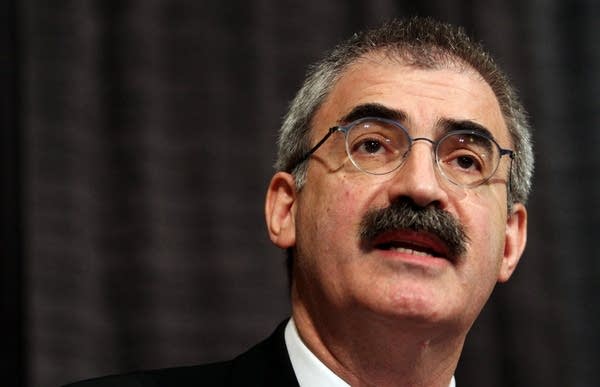MnSCU aims to link programs to job skill needs
Go Deeper.
Create an account or log in to save stories.
Like this?
Thanks for liking this story! We have added it to a list of your favorite stories.

If there's one thing Minnesota employers have told state educators they want in today's graduates, it's this: The ability to start working quickly.
But employers say they can't find enough workers who have the skills to do so.
As part of a budget request to the Legislature, the Minnesota State Colleges and Universities System requested $33 million in the next two-year state budget to better prepare students for the worls of work. The money would be matched by Minnesota businesses.
MnSCU officials say the investment would address the jobs-skills mismatch decried by employers in manufacturing and other fields who say jobs at their firms go unfilled because they cannot find workers with the right skills.
Turn Up Your Support
MPR News helps you turn down the noise and build shared understanding. Turn up your support for this public resource and keep trusted journalism accessible to all.
With that in mind, this spring, MnSCU Chancellor Steven Rosenstone helped organize a survey to find out what businesses around the state want out of college graduates.
"We're trying to document and have a far more precise understanding of how much, where, and exactly what they're talking about," Rosenstone said. "Secondly, we're committed to guarantee and ensure that when our graduates leave, they are prepared."
"Employers have seen students coming without any work experience, or any idea what it is to work in an office."
Executives from more than half a dozen industries told MnSCU officials that they want workers with a complete background: relevant experience, training, social and technical skills.
Employers complain that some students have been schooled on equipment that's 20 years old, said Amy Walstien, director of education and workforce development policy at the Minnesota Chamber of Commerce, another sponsor of the survey.
"If the students are being trained on antiquated equipment, it just takes that much more to get them ready to work," she said.
Walstien said the latest generation could also use a little orientation to the world of work.
"Employers have seen students coming without any work experience or any idea what it is to work in an office -- simple things like showing up on time," she said. "They found that it's challenging."
That's where MnSCU comes in.
It hopes a big push for internships and training equipment will help get students get up to snuff. The training money in MnSCU's biennial budget request to the Legislature, which trustees approved Wednesday, would allow university officials to offer 10,000 students a $1,500 stipend each to support internships.
Mary Rothchild, who oversees workforce development for MnSCU, said the stipend would pay for tuition and extras such as transportation, books and materials.
Students would spend about as much time on the job as they'd spend studying and attending one class -- about 10 hours a week, though that could vary.
"They get the course credit, and then they get whatever money is left over of the total of up to $1,500," Rothchild said. "So in a way, they're modestly paid internships."
Along the way, students would acquire communications, analytical and organizational skills necessary to be effective in business. They would also learn how to interact in a business setting.
Rothchild said MnSCU wouldn't just throw money at colleges for equipment. Instead, she said, employers would help choose what is relevant to their industries.
"If in fact an employer is willing to contribute the funding to purchase a piece of equipment, they will have given some thought to whether that equipment meets the current needs of their workforce," she said.
Nationally, some skeptics doubt a skills shortage exists. Among them are Kevin Carey, director of the education policy program at the New America Foundation, and Peter Cappelli, a business management professor at the University of Pennsylvania's Wharton School.
Wages are too low to attract skilled workers, they say, and not enough businesses are willing to train new ones.
Steve Hine, research director at the state Department of Employment and Economic Development, also questions the shortage. But he sees merit in the MnSCU plan.
"Anything that can improve the communication about what skills are necessary and how they can be imparted on the workforce is a good conversation," Hine said.
Rosenstone said the debate over who should pay for to train new workers is of little use to students.
"They're really all coming to us hoping that when they're done they're going to be prepared for work, and get a job, and a well-paying job to boot," he said. "So I think we have some responsibility to our students."
Incoming House Speaker Paul Thissen, DFL-Minneapolis, praised what he called the "creative thinking" coming out of the state's university systems.
If the Legislature fulfills MnSCU's funding request, colleges could start buying equipment and funding internships next summer.
---
• Follow Alex Friedrich on Twitter: http://twitter.com/mprafriedrich
Dear reader,
The trustworthy and factual news you find here at MPR News relies on the generosity of readers like you.
Your donation ensures that our journalism remains available to all, connecting communities and facilitating better conversations for everyone.
Will you make a gift today to help keep this trusted new source accessible to all?




